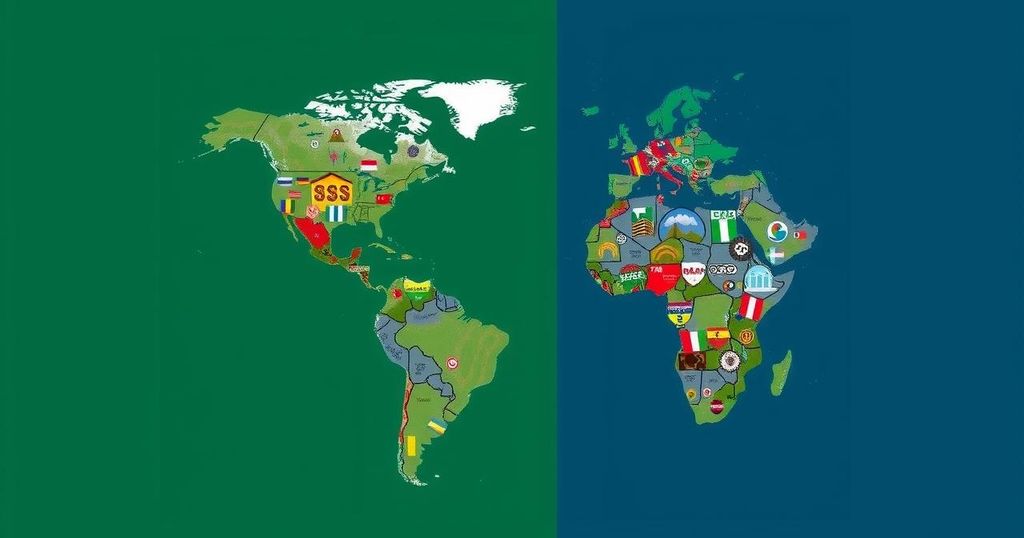Delegates from developing nations condemned the $300 billion annual climate funding commitment from wealthy nations, labeling it insufficient. Prominent voices from India and Sierra Leone highlighted the deal’s inadequacy, which symbolizes a profound disappointment in meeting climate finance needs. The final agreement aims to increase funding but falls significantly short of the minimum requirements set by advocacy groups, emphasizing the need for improved commitments and cooperation.
In a recent climate summit in Baku, nearly 200 nations reached a consensus on a financial agreement to support climate efforts, but the pledge of $300 billion per year from wealthy nations was swiftly criticized as inadequate by developing countries. Delegates from India and Sierra Leone expressed profound disappointment, describing the commitment as insultingly low and indicative of a lack of goodwill from developed nations. Tina Stege from the Marshall Islands recognized the figure as a mere starting point, while the Alliance of Small Island States echoed similar sentiments of dissatisfaction. Despite prolonged negotiations and a near collapse of discussions, the deal aims for at least $300 billion annually by 2035 to assist developing nations, markedly increasing from the previous $100 billion pledge. However, several nations maintain that this figure remains significantly beneath the necessary support needed for combating climate change, with proposals from developing countries often around $500 billion. Amidst political pressures, UN representatives acknowledged the imperfections of the outcome, urging it to be seen as a foundation for future efforts rather than a definitive solution to pressing climate issues. The deal also suggests that developing nations may voluntarily contribute, yet excludes effective commitments from large emitters such as China. The overall target to address climate-related challenges has been articulated as $1.3 trillion per year, mainly relying on private investments rather than direct government funding from developed nations.
The negotiations surrounding climate finance have become increasingly critical as developing countries face the worst impacts of climate change despite contributing the least to the crisis. It is essential for wealthier nations, historically responsible for the majority of greenhouse gas emissions, to step up their financial support for adaptation and mitigation strategies in poorer regions. The dynamics of these negotiations reveal the ongoing tensions between developing and developed nations, particularly regarding the adequacy of financial commitments to support climate action and economic reforms in vulnerable countries.
In summary, the climate deal established in Baku, while a step forward in negotiations, has ignited considerable discontent among developing nations who view the financial commitment as inadequate amidst escalating climate challenges. The disparities between the requested and offered amounts underscore the extensive work remaining to support vulnerable populations effectively. As discussions move forward, it will be crucial for nations to enhance their commitments and address the urgent needs posed by climate change, ensuring a concerted global effort towards sustainability and resilience against climate impacts.
Original Source: www.france24.com






